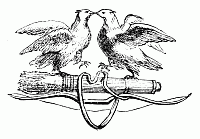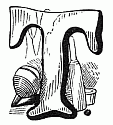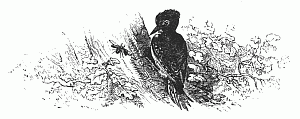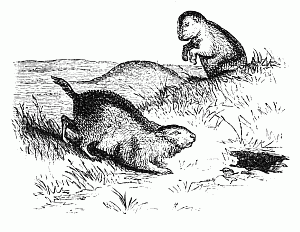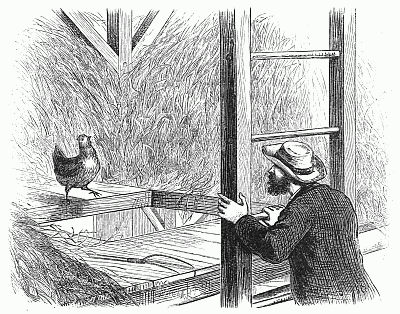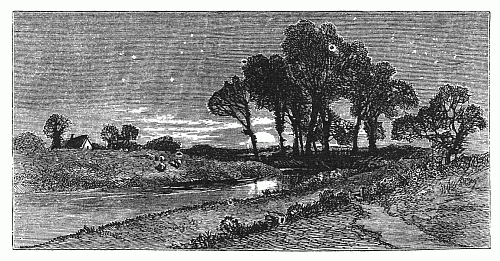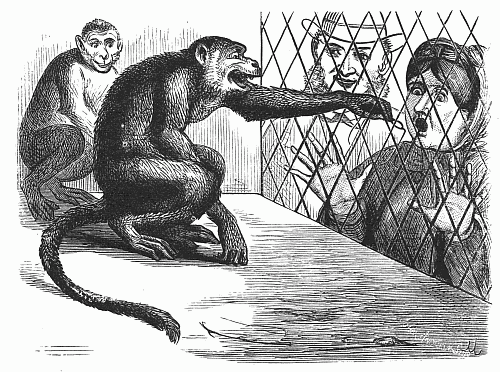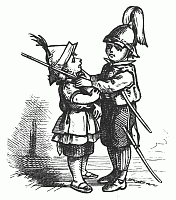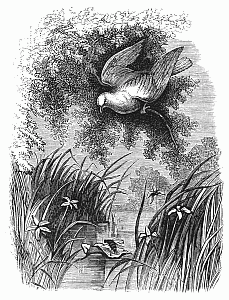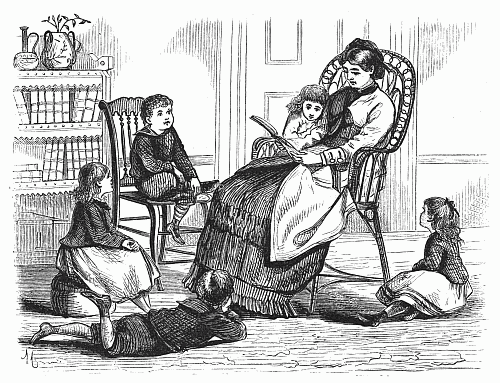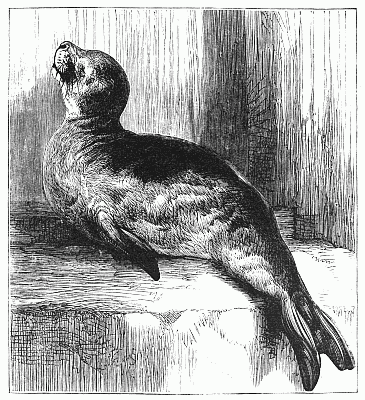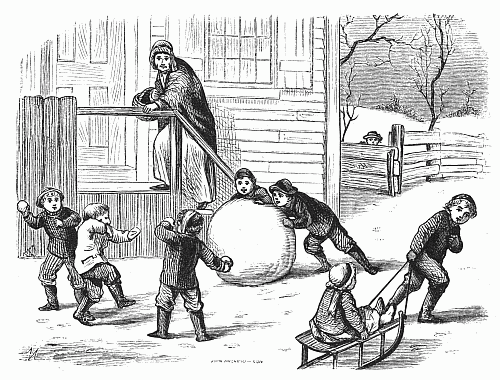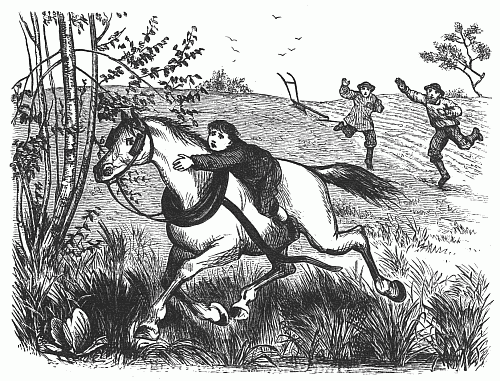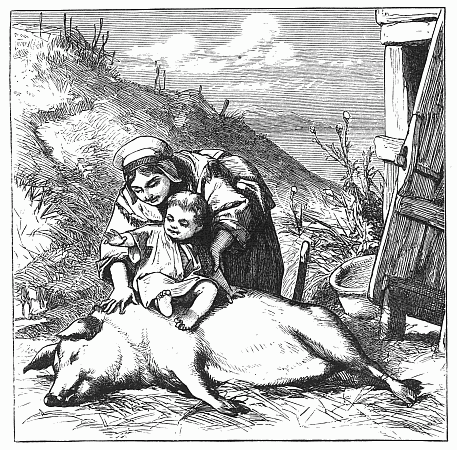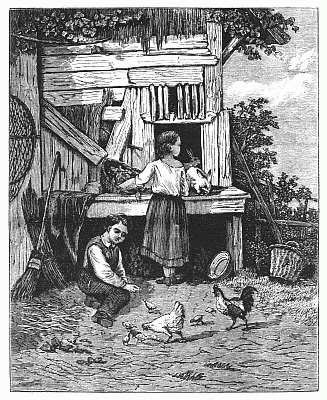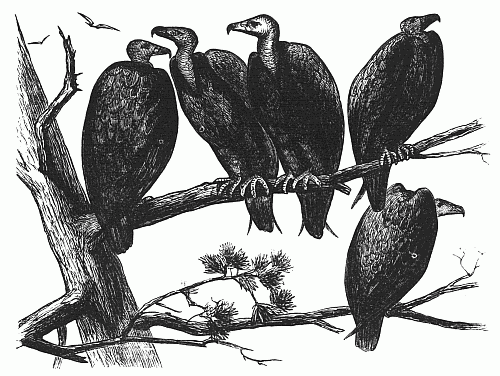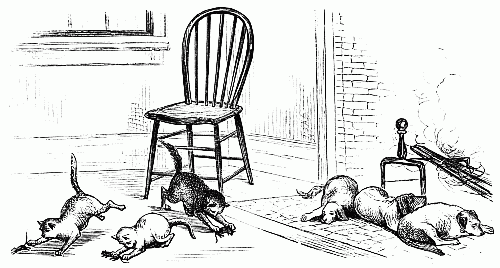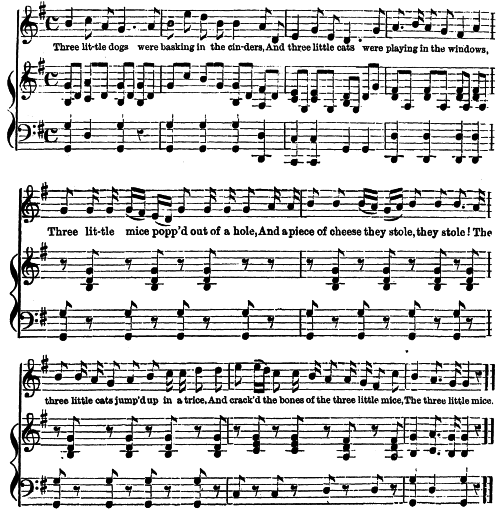Project Gutenberg's The Nursery, April 1877, Vol. XXI. No. 4, by Various
This eBook is for the use of anyone anywhere at no cost and with
almost no restrictions whatsoever. You may copy it, give it away or
re-use it under the terms of the Project Gutenberg License included
with this eBook or online at www.gutenberg.org
Title: The Nursery, April 1877, Vol. XXI. No. 4
A Monthly Magazine for Youngest Readers
Author: Various
Release Date: February 20, 2009 [EBook #28132]
Language: English
Character set encoding: ISO-8859-1
*** START OF THIS PROJECT GUTENBERG EBOOK THE NURSERY, APRIL 1877 ***
Produced by Emmy, Juliet Sutherland and the Online
Distributed Proofreading Team at http://www.pgdp.net. Music
by Linda Cantoni.
THE
NURSERY
A Monthly Magazine
For Youngest Readers.
VOLUME XXI.—No. 4.
BOSTON:
JOHN L. SHOREY, No. 36 BROMFIELD STREET,
1877.
Entered according to Act of Congress, in the year 1877, by
JOHN L. SHOREY,
In the Office of the Librarian of Congress at Washington.
FRANKLIN PRESS:
RAND, AVERY, AND COMPANY,
117 FRANKLIN STREET,
BOSTON.
IN PROSE.
| "Why did Elfrida go to Sleep?" | 97 |
| The Prairie-Dog | 100 |
| Strut | 101 |
| Third Lesson in Astronomy | 103 |
| The Robbery | 104 |
| The Little Recruit | 107 |
| One good turn deserves another | 109 |
| A Letter from Texas | 110 |
| Drawing-Lesson | 113 |
| A Story of a Seal | 114 |
| Fun in Winter | 117 |
| Old Whitey | 118 |
| Why do they all Love Freddy? | 122 |
| My Rabbits | 125 |
| The Council of Buzzards | 127 |
IN VERSE.
| The Caterpillars | 102 |
| Puss and her Three Kittens | 106 |
| Fred and Ned | 120 |
| How the Morning comes | 124 |
| A Mother Goose Melody (with music) | 128 |
[97]
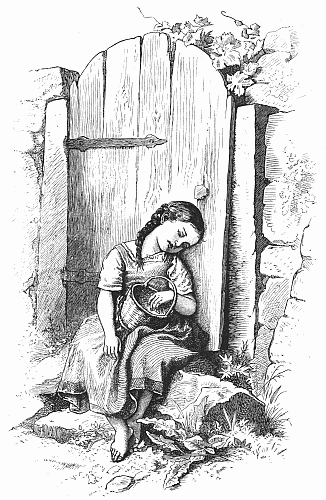 "WHY DID ELFRIDA GO TO SLEEP?"
"WHY DID ELFRIDA GO TO SLEEP?"
[98]
"WHY DID ELFRIDA GO TO SLEEP?"
HAT was the question, "Why did Elfrida go to
sleep?" She had been sent to the grocer's in
the village; and the grocer's was only half a
mile off from Brook Cottage, where she lived
with her aunt and five cousins. She had been
sent to buy a pound of sugar, half a pound of coffee, and
five small rolls of bread.
Usually she would go to the shop and return in less than
half an hour. Now a whole hour went by, and no Elfrida
was to be seen. What could be the matter? Had she run
a thorn into her foot, and been lamed? Had she stopped to
talk with the children on their way home from school? Had
she been run over by a fast horse?
"Let us go and find her," cried James, the eldest of the
three boys. "Let us all go!" echoed Susan, his youngest
sister. "Shall Sport go with us?" asked Emma. "By all
means!" said James. "Here, Sport, Sport! Where are
you, old fellow?" A big black-and-white Newfoundlander
soon rushed frisking in, wagging his tail, and seeming ready
to eat up every one of the children, just to show them how
fond he was of them all.
Then the children all set out for Mr. Spicer's shop.
There they learned that no Elfrida had been seen in the
shop that afternoon. "Where can she be?" cried James,
a little anxious. "Sport, where is Elfrida?"
Sport stopped his nonsense of playing with a stick, and
began to look serious. Then he made a bee-line for the
nearest turning on the right, on the way home. This was
an old lane, on which some old gardens backed, and which
led, by a little longer way, to Brook Cottage.
By the time the children had arrived at the head of the[99]
lane, Sport was seen galloping back in a state of great
excitement. "Bow-wow!"—"Oh, you have found her,
have you, old fellow?"—"Bow-wow!"—"Well and
good! You are a jolly old Sport!"
On the step of the gate of an old garden sat Elfrida, fast
asleep, with her empty basket in her lap. Emma proposed
to tickle her nose with a straw. "No! I will pull that thick
braid of hair," said Susan. "No! let me whisper in her
ear," said James. But, before anybody did any thing, Sport
settled the question by putting his paws up on her shoulders,
and crying, "Bow-wow!"
Elfrida started, and looked around as if in a dream.
"What does it mean? How long have I been here?"
cried she. "Why did you go to sleep?" asked the two
girls. "Yes, why, why, did you go to sleep?" echoed all
the boys. "Oh, that's my secret," said Elfrida. "Now
who can catch me in my run to Mr. Spicer's?" So off she
started, followed by Sport and all the children.
"Now tell us why did you go to sleep?" said the children,
as they were all on their way home, after she had made her
purchases. "Will you promise not to tell anybody, if I tell
you?" asked Elfrida. "We promise, we promise!" cried
all the children. "Now, then, why did you go to sleep?"—"Hush!
I went to sleep because—because—because I
was sleepy," said Elfrida.
Arthur Selwyn.
[100]
THE PRAIRIE-DOG
My friend John lives in Colorado, not far from Denver;
and he writes me, that he and his sister, not long ago,
walked out to see some prairie-dogs.
The prairie-dog is about the size of a full-grown squirrel,
and of a like color. It makes a hole for itself in the ground.
This hole is in the shape of a tunnel, and as large round as
a man's hat.
Now, this little dog is so gentle, that he lets the owl and
the rattlesnake come and live with him, if they like. All
three are often found dwelling together. For my part, I
should not much like such neighbors.
The prairie-dogs live on the roots of grass. Scattered all
around the entrance to their homes, you may see remnants
of the dry roots which they have got for food. They are
quick in their movements, and quite playful.
Johnny writes me, that, when some of these little dogs
saw him and his sister approaching, they sat down on their
hind-legs, and began barking. Then they dropped into
their holes backwards. As Johnny did not care to wake up
any of the other lodgers, he and his sister went home, well
content with their first sight of a prairie-dog.
Aunt Alice.
[101]
STRUT
Strut was the name of a hen that lived on Father Nunn's
farm, nine miles from Norwalk, Ohio.
She was very vain; that is, she had a very good opinion
of herself. She always would strut when walking. Indeed,
it was hard for her to pick up grains of corn as other chickens
did. I think she never saw her feet in her life: certainly
she never looked where she stepped.
Worse than all this, when she saw any person in the yard,
instead of dodging away, as a modest hen should, she would
strut right up to such a person, and look saucily in his face,
as though asking, "Who are you? Where are you going?
What for?"
At last, however, Strut received a severe rebuke for her
evil ways. Cousin William Bird, who is soon to be a doctor,
was visiting at Father Nunn's. Having occasion to climb[102]
the ladder to the barn-loft, he saw Strut on the farther side.
He knew that she would come straight to him; and he also
knew that she would not look where she stepped. So he
held still to see what would happen; for exactly between
them was an opening in the floor for throwing down hay.
Sure enough, Strut started for Cousin William, and, stepping
off the edge of the hole, fell fluttering, cackling, and
frightened, to the floor beneath.
She was humbled by her fall; for she never strutted
again, but walked and ate afterwards like other chickens.
Uncle Joe.
THE CATERPILLARS
Eight great cabbages growing in the ground;
Crowds of little caterpillars crawling all around;
Caterpillars squirmed about, and wriggled in the sun;
Said, "These cabbages look sweet: suppose we taste of one!"
Down flew a hungry bird, coming from the wood,
Saw the caterpillars there, and said, "Won't those taste good!"
Up crept pussy-cat, hunting round for mice,
Saw the bird, and smacked her lips, and said, "Won't he taste nice!"
Dog saw pussy creeping there, and he began to run,
Said, "Now I will frighten puss, and then there will be fun!"
So doggy barked; and pussy hid; and birdie flew away;
And caterpillars lived to eat a cabbage up that day.
Fleta F.
[103]
THIRD LESSON IN ASTRONOMY
I have told you about the sun and the stars. Can you
think of any thing else in the sky that you would like to
know a little about? Of course, I do not mean the dark
clouds, but something bright and pretty, that all children
love to look at.
I think you must have guessed that I mean the moon,—the
beautiful moon. Now, I want you to make another
guess: Is the moon bright because it is made of fire, like the
sun; or because the sun shines on it, as it does on Venus and
Jupiter?
If any of you think it is made of fire, you must try to
warm your little toes and fingers in the moonlight, as you do
in the sunshine, and you will find out for yourselves that it
is not a great fire, like the sun, and that you cannot get
warm in the light of it.
And now you will guess at once, that, if it is not fire itself,
it must shine from the sun's fire; and that is right. The
moon itself is cold and dark. It is the light of the sun that
makes it look bright to us. We might call it the sun's
looking-glass, in which we see his image or reflection.[104]
But we cannot at all times see the whole of it. When
we do, we call it a full moon, and, when we see only the edge
of it, we say it is a new moon. The moon itself does not
change its shape. It is always round, like an orange—a
dark round ball, which we should never see at all, if the sun
did not light it up for us; and it is only a part of the time
we can see the side which is lighted up.
Which do you suppose is the larger,—the moon, or the
stars? Now I know you will say the moon, because it looks
so much larger; but you must remember that the stars are
so far away, we can hardly see them at all, and the moon is
our own moon, and much nearer to us than our own sun.
We can see more of it than we can see of the stars; but
it is a very small thing indeed, compared with one of them.
It would take about fifty moons to make one such earth as
we live on, and it would take more earths than you can
count to make one star or sun.
M. E. R.
THE ROBBERY.
I must tell you of something that happened one day last
summer, when I was at the Zoölogical Garden in Philadelphia.
Among the persons standing around the cage where the
monkeys were kept, was an old lady who had on a pair of
gold-rimmed spectacles. All at once, a big brown monkey
stretched out his paw between the bars, snatched the spectacles,
and scampered away, chattering and grinning with
delight.
Of course, the poor lady was in distress. The keeper
came to the rescue, and, by driving the monkey about the[105]
cage with a long pole, forced him at last to drop the spectacles.
But one of the glasses had come out of it; and this
the thief still held in his mouth, and refused to give up.
The keeper followed him sharply with the pole. Away
he went, swinging from one rope to another, screaming and
scolding all the time, until the keeper was so tired, that I
feared he would have to let the monkey keep the glass.
But this the keeper said would never do; for he knew, that,
if he let the monkey carry the day, he never could control
him again.
So the keeper still plied his pole. The monkey dodged
it as well as he could, until the blows came so thick and
fast, that he could bear them no longer, when he opened his
mouth, and let the glass drop.
Now comes the funniest part of the story. The glass fell
quite near the bars, just where the old lady was standing;[106]
and a gentleman took her parasol, which had a hooked
handle, to draw it within reach. But he put the parasol
in a little too far, and it slipped out of his hand.
Instantly a large yellow monkey wrapped his long tail
around it, and started off. Imagine the feelings of the poor
old lady—first robbed of her spectacles, and then of her
parasol!
But her property was all recovered at last; the robbers
were both punished; and she went on her way in peace.
Mrs. E. S. R.
PUSS AND HER THREE KITTENS.
Our old cat has kittens three;
What do you think their names should be?
One is a tabby with emerald eyes,
And a tail that's long and slender;
But into a temper she quickly flies,
If you ever by chance offend her.
I think we shall call her this—
I think we shall call her that;
Now, don't you fancy "Pepper-pot"
A nice name for a cat?
One is black, with a frill of white,
And her feet are all white fur, too;
If you stroke her, she carries her tail upright,
And quickly begins to purr, too.
I think we shall call her this—
I think we shall call her that;
Now, don't you fancy "Sootikin"
[107]A nice name for a cat?
One is a tortoise-shell, yellow and black,
With a lot of white about him:
If you tease him, at once he sets up his back:
He's a quarrelsome Tom, ne'er doubt him!
I think we shall call him this—
I think we shall call him that;
Now, don't you fancy "Scratchaway"
A nice name for a cat?
Our old cat has kittens three,
And I fancy these their names will be:
"Pepper-pot," "Sootikin," "Scratchaway,"—there!
Were there ever kittens with these to compare?
And we call the old mother—now, what do you think?
"Tabitha Longclaws Tiddleywink."
Thomas Hood.
THE LITTLE RECRUIT.
There had been an insurrection
in Dolldom. Insurrection is a big
word: what does it mean, I wonder?
I will tell you: it means an
uprising, a rebellion. If a number
of persons should refuse to obey
the law, and rise up in arms to
resist it, they would be guilty of
an insurrection.
Now, it happened (according to
Tommy's story) that all the dolls in the house, headed by
a naughty male doll of African descent, and known as
"Dandy Jim," rose in insurrection against their lawful[108]
queen, Lucy the First, whose brother, Duke Tommy, was
commander-in-chief of her Majesty's forces.
The rebels were well fortified in one corner of the play-room.
They had mounted several cannon on alphabet-blocks;
and a whole company of tin soldiers defended the
outworks. Besides this, a china dog and a wooden elephant
had been enlisted as allies, and stood bravely in front.
General Tommy felt a weight of responsibility upon his
shoulders, and, like a prudent soldier, he resolved not to go
into battle until his army was large enough to make victory
certain. So he enlisted Queen Lucy the First as a recruit.
Queen Lucy looked very grand in her paper cocked hat,
with a feather at the top. She carried a gun; and General
Tommy taught her how to fire it off. When all were ready
for the onset, he blew a trumpet.
The army marched in excellent order along the entry,
into the play-room; and not a soldier drew back as they
came within sight of the enemy. "Halt!" cried General
Tommy. The army halted. The traitor, "Dandy Jim,"
stood pointing his sword, and the dolls all kept still.
One long blast of the trumpet, and then the brave General
Tommy cried out, "Now, soldiers, on, on to victory!"
On they went. The tin soldiers were soon swept down.
The dog and the elephant were handsomely beaten; and,
rushing into the fort, General Tommy seized the traitor,
"Dandy Jim," by the throat, and said, "Now, sir, your
doom is a dungeon!"
The dolls all fell on their knees, and thus was the great
insurrection in Dolldom put down without bloodshed, and
the authority of Queen Lucy the First fully restored. Of
course, there was great rejoicing; and, when the reporter
left, General Tommy was preparing for a grand illumination.
Emily Carter.
[109]
ONE GOOD TURN DESERVES ANOTHER.
On a fine summer day, a dove, that was perched upon
the branch of a tree, saw a bee fall into a stream that was
flowing past. The poor bee tried to get out of the water,
but could not.
The dove, seeing that the bee was struggling for her life,
dropped a leaf close beside her, so that she might climb on
to it, and save herself. This the bee at once did, and very
glad she was to find herself safe once more.
Not long after this, a sportsman, who was roaming through
the woods for game, saw the dove flying about, and lifted[110]
his gun to shoot her. But, just as he was taking aim, something
happened, that checked him in the act.
The bee, whose life had been saved by the dove, was
going about from flower to flower in search of honey, when
she saw the sportsman taking aim at the good dove that
had befriended her in her time of need. "That dove once
saved my life, and now I will save hers," thought the bee
to herself.
With that she flew at the sportsman, and stung him on
the lip. The poor fellow dropped his gun with a loud cry
of pain, which so startled the dove, that she flew away; and
the man did not have another chance to shoot her. "Surely
one good turn deserves another," thought the bee, as she
turned merrily to her work.
Leonora.
A LETTER FROM TEXAS.
Dear Children,—I am writing this letter at my office-desk
in San Antonio, Texas, a long way off from some of
you who will read it. I am the big brother of a lot of little
ones, and they call me "Doc."
We take "The Nursery," and the little folks think it is
splendid. As soon as it comes, mamma reads the stories,
and shows them the pictures.
They crowd around her to listen: some of them sit down
on chairs like little ladies; some sit on the floor like beggars;
and some—I am sorry to say—lie flat down on the carpet,
like—certainly not like ladies and gentlemen.
What do you think, children, of boys and girls who lie on
the floor, and kick up their heels in the air? You would
not do so, would you?[111]
Now listen! I want to tell you something about our cat.
When we first got her, she was a tiny kitten, and we fed her
on milk in a saucer. You ought to have seen her lap it up
with her little tongue! Don't you think it is a pretty sight
to see a kitten drinking milk? I do. But our cat isn't a
kitten any longer, but a great, big, grown cat.
Well, the other night she got locked up in the schoolroom.
You know Miss Anna and Miss Emma teach a big
school in our house, and Willie, Pressley, Eddie, May, and
Emily go to it. Sadie, "Little Lalla," and baby are too
young for school yet. These are my little brothers' and
sisters' names. There are eight of them mentioned here.
See if you can count them.
As soon as Emily found out that Kitty was locked up,
she ran to Miss Eliza and mamma, and asked them to let
her out; but they said, "No," for they knew that, if she[112]
got out of the schoolroom, she would surely run into the
dining-room, and drink up the baby's milk. So she had to
stay there all night.
Early next morning, Miss Eliza went into the schoolroom
to let Kitty out; and what do you think she saw? There
was Kitty, fast asleep in Willie's little wagon, and four little
kittens lying by her side, fast asleep too.
When Miss Eliza went back to the nursery, and told the
children what she had seen, Eddie, May, Emily, Sadie, and
even "Little Lalla" set up a big shout, and, bursting out of
the nursery, ran shouting and laughing to the little wagon
in the schoolroom, where, sure enough, there they were,
four little ones. Three were gray and white, and one gray
and black. Kitty looked so pleased and so happy! You
ought to have seen her. Wasn't that a nice surprise?
May chose the one that looked most like Kitty: Emily and
Sadie each chose one of the gray-and-white ones, and Eddie
took the gray-and-black fellow.
To-day is Emily's birthday. She is seven years old, and
may have a little party. If she does, how I would like to
have you all here to play with her! However, at some
future time I may write, and tell you all about it.
But it is time for me to run home, and get some dinner:
so good-by.
"Doc."
[113]
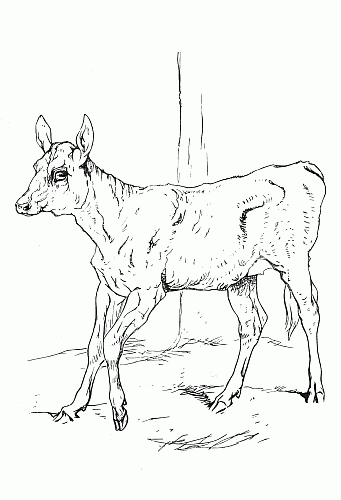 DRAWING-LESSON BY HARRISON WEIR.
DRAWING-LESSON BY HARRISON WEIR.
[114]
A STORY OF A SEAL.
"The seal is an amphibious quadruped."
"Oh, come now, Aunt Emily, do not puzzle us with your
hard names," cries Johnny.
"But, Johnny, a lad seven years old ought to know that
amphibious means 'capable of living on land or water;' and
that quadruped means 'having four feet.'"
"Oh, now I understand," said Johnny. "But does the
seal have feet?"
"It has a sort of feet; but they are so wrapped up in the
skin, that they are not of much use on land, except to help
it to creep, after a fashion. So the seal passes most of its
time in the sea, coming on shore only to bask and sleep in
the sun, or to suckle its young ones. It is covered with a
close thick fur and is a very good swimmer."
"But let us have the story," said Jane.
"The story is this: once a fisherman, after harpooning
an old seal, found one of its young ones on the sand, and
took it home. Here it became the playmate of the children,
whom it seemed to love very much. They named it Blue-eyes.
It would play with them from morning till night,
would lick their hands, and call them with a gentle little
cry, not unlike the human voice in its tone.
"It would look at them tenderly with its large blue eyes,
shaded by long black lashes. It was very fond of music.
It would follow its master to fish, swimming around the
boat, and taking a great many fish, which it would give up
without even biting them. No dog could have been more
faithful, or more quick to learn what was wanted.
"But the fisherman's half-sister was a silly old woman.
She had come to help nurse his wife, who was ill. This
half-sister took it into her head that the poor seal would[115]
bring bad luck to the family. She told her brother that he
must get rid of it.
"Weary of her teasing, he at last took the poor seal,
rowed with it out into the open sea, and there, more than
seven miles from the shore, threw it into the water, and
then hurried home as fast as sails would carry him.
"But, when he entered his cottage, the first thing he saw
was the faithful seal lying close beside the cradle of one of
his children. As soon as it saw its master, it showed great[116]
joy, and tried to caress him. But he took the seal and
gave it away to a sailor, who was going on a long voyage.
Two weeks afterward, as the fisherman came back from his
boat, he saw the seal at play with the children.
"'If you do not kill that seal, I will kill it myself,' said
the old aunt. The children began to cry. 'No, no, you
shall not kill it!' cried Hans with flashing eyes. 'You shall
kill me first,' cried little Jane. 'You have no right to kill
it,' cried Mary, the eldest girl.
"'Am I to be ruled by these children?' said the silly
aunt, turning to her brother.
"'The seal shall live,' said he: 'the children shall have
their way. Your notion that the poor seal brings bad luck
is a very silly notion. You ought to be ashamed of it.'
"'Hurrah!' cried Hans. 'Blue-eyes, the vote is taken:
you are to live, and all this nonsense about your bringing
bad luck is blown away.'
"The seal began to flop about as if in great joy.
"'I shall leave the house at once,' said the silly aunt.
"'Do as you please,' said the fisherman.
"And so it turned out, that the only ill luck brought to
the family by the seal was the departure of the cross and
silly old aunt. And, if the truth were known, this was
found to be a very good thing for all. The fisherman
prospered, the mother of the children got well at once; and
all were happier than ever before, including Blue-eyes, who
now was the jolliest seal that ever played with children."
Emily Carter.
[117]
FUN IN WINTER.
The ground was white with snow. The sky looked black
as though another storm were coming. The day was very
cold; but the tough boys and girls did not mind the cold
weather. They were out to have some fun.
Their rubber boots, and thick coats and mittens, kept
them dry and warm. One of the boys, though, had come
out bare-headed. He was the boy who never could find
his cap when he wanted it. His name was Tom.
"Now look here, Tom," said his brother Sam, a sturdy
little chap, who was always trying to keep Tom in order;
"this won't do. You go into the house and get your cap.
Go quick, or you'll get this snowball right in your face."
"Fire away!" said Tom, dancing around, and putting up
his arm to keep off the snowball.[118]
"I'm going to have a hand in this game," said Joe,
aiming a snowball at Sam. "Look out for yourself, old
fellow."
"Clear the track!" cried Bill and Ned, rolling a huge
snowball down the hill.
Mrs. O'Sullivan, who was just going up the back-steps to
ask for cold victuals, looked around to see what was going
on; while Charles had his own fun in dragging his little
sister up the hill on her sled.
All this time, a little boy named Jim, who had been
having a private coast in the field near the house, was
peeping over the fence, and wishing he were old enough to
play with the other boys. He didn't venture to join them,
for he was bashful, and rather timid: but he saw all that
took place, and he will remember all about it when he sees
this picture.
Uncle Sam.
OLD WHITEY.
I am a great boy six years old, and I take "The Nursery."
Some of the stories I spell out myself; but the most of them
mamma reads aloud to my little brother Albert and me.
Last summer, we all went to visit an uncle who lives on a
large farm. We had just the best kind of a time. There
was a big dog, named Rover, that would play with us for
hours. He would run after and bring back a ball or stick, or
any thing that we would throw for him. He would "speak,"
"roll over," "sit up and read," and do lots of funny tricks.
Then there was a white horse twenty-five years old, and
just as sleek and fat as a colt. Old Whitey has lived on
the farm ever since he was a little colt. Old as he is, he is
still able to do a great deal of work.[119]
One day Uncle Wash was ploughing, and he put me on
the back of Old Whitey. Well, I liked that very much, and
began to cluck, and jerk the reins, to make him go along;
when in an instant, without any warning, he pricked up
his ears, kicked up his heels, and ran away, leaving the
plough behind.
I can't tell you how scared I was. I held on as long as I
could; but it was of no use. The old horse ran through
swamps and bogs, and dropped me, head first, in the mud
and dirt. I was hurt on my head and side, but I would not
cry because I was too big for that. When the men got to
me, I was hunting for my hat.
After getting rid of his load, the runaway coolly walked
up to the barn, and stood looking as mild as a lamb. I
didn't have any faith in Old Whitey after that, though
his master said he never knew him to do such a thing
before.
Nelson.
Woodstock, Vt.
[120]
FRED AND NED.

"
Oh, this is weather for play, for play!
And I will not go to school to-day,"
Said Master Frederic Philip Fay.
So he hung his satchel upon a tree:
And over the hills to the pond went he,
To frolic, and see what he could see.
He met a boy on the way to school,
And said, "Ned Foster, you're a fool
To study and plod because it's the rule."
Quoth Ned, "You'll find that
he's the fool
Who, for his pleasure, shirks his school:
Sun, moon, and stars, all go by rule."
Then Ned passed cheerily on his way,
And not another word did say
To Master Frederic Philip Fay.
Fred sat him down on a rock near by,
And cast a look on the bright blue sky,
[121]And then at the sun, that was mounting high.
"Yes, truly, the sun has no time for play:
He has to go in a certain way,"
Said Master Frederic Philip Fay.
"Oh! what would become of us all, suppose
The sun, some morn, should say, as he rose,
'A truant I'll be to-day—here goes!'
"Then off should whirl in a mad career,
And leave it all night and winter here,—
No blue in the sky, no flower to cheer?
|
"Yes, there is a duty for every one,
For Master Fay, as well as the sun:
A law must be minded, a task must be done."
Up started Frederic Philip Fay:
He took from the tree his satchel away,
And ran off to school without delay.
Ida Fay.
|
[122]
WHY DO THEY ALL LOVE FREDDY?
"But do they all love Freddy, mamma?"
"I think there is no doubt of it, Freddy. The cat loves
you; for she will let you pull her about, and never try to
scratch you."
"Yes; and I think old Towser loves me. He lets me get
on his back: he never bites me."
"I would like to catch him at it—biting my little
Freddy! He knows too much for that; and, besides, he
loves you."
"But does the old cow love me, mamma?"
"Why, didn't she let you play with her calf, and never
try to hook you? The old cow loves Freddy, and will give
him all the fresh milk he wants."
"The hens love me because I feed them."
"Yes, the hens love you; and, more than that, the little
sparrows love you; for they follow you, and hop about your
feet, as if they wanted to say, 'Good-morning, Freddy!
We all love you, Freddy.'"
"But I will tell you one beast that does not love me,
mamma. The old sow does not love me."
"Don't you believe it, little boy! The old sow loves you
just as well as Towser does; just as well as the cow does;
just as well as old Scamper, the horse, loves you."
"I should like to be sure that the sow loves me."
"Come with me, and I will put you on her back; and, if
she does not like it, it will be a sign that she does not love
you; but, if she does like it, it will be a sign that she loves
my little Freddy just as much as the others do."
So mamma took Freddy, and placed him on the back of
the old sow. The old sow gave a look over her ears, saw it
was Freddy, and then uttered a contented grunt, as much[123]
as to say, "All right! Freddy, you are a darling, and I
love you."
"Did I not tell you that the old sow loved you, like the
rest?"
"Yes, mamma; but why, why, do they love me? Tell
me that."
Mamma snatched Freddy up in her arms, took him into
the house, and then said, "I think they must love you,
Freddy, because you love them. Love wins love, you know.
The person who says that no one loves him should ask himself
the question, 'But do I love any one?'"
Ida Fay.
[124]
HOW THE MORNING COMES.
Cheery, cheery,
Out of the dreary
Dark there glows
A tint of yellow, a purple gleam,
A shine of silver, a brazen beam,
A flush of rose;
The darkness, meanwhile, flying, gone:
Thus does the morning dawn.
Creeping, creeping,
Daintily peeping,
Hastes the light
Through the window to see where lies
The little girl with the sleepy eyes;
Glistens bright
With very joy to find the place
Where lies her dreaming face.
Drowsy, drowsy,
A little frowzy
Gold-locked head
Turns on its pillow, yawns, and winks;
Lifts from its pillow, peeps, and blinks;
Turns in bed;
Then with a slow, reluctant shake,
Is almost wide awake.
Mrs. Clara Doty Bates.
[125]
MY RABBITS.
One day Cousin John asked
me if I would like two nice
rabbits. I said I would like[126]
them very much. So he gave
them to me, and I had a pen
made for them.
One I called Pink, and the
other White. They were very
tame, and soon got to know
their names. I took them out
and let them run about the yard
every fine day.
Once Pink ran away, and I
thought he was lost. I had a
long chase after him through
the bushes; but I caught him
at last and brought him home.
My brother George kept a
lot of chickens in the yard, and
while I fed my pet rabbits, he
would feed his chickens.
Hattie.
[127]
THE COUNCIL OF BUZZARDS.
The buzzard is a large black bird, nearly as large as
a turkey. He never kills that he may eat, but devours
the refuse in the city streets, and the dead animals on the
prairies and swamps of the Southern States. It is against
the law to shoot buzzards; for they are the health officers
of the South.
Here, in beautiful, sunny Louisiana, I seldom look out
doors without seeing one or more buzzards slowly circling
around in the air in quest of food. Before they begin to
eat, they arrange themselves in a solemn row, as if holding
a council, and "caw" in a very wise manner. Then one
flies down, and then another, and another; and as they eat,
they seem to comment on their repast. At last nothing is
left of it but the bare bones to bleach in the sun. They
will eat an ox in a day.
Aunt Ann.
La Teche, La.
[128]
A MOTHER GOOSE MELODY.
Music by Annie Moore.
[Transcriber's Note: You can play this music (MIDI file) by clicking here.]
Three little dogs were basking in the cinders,
And three little cats were playing in the windows,
Three little mice popp'd out of a hole,
And a piece of cheese they stole, they stole!
The three little cats jump'd up in a trice,
And crack'd the bones of the three little mice,
The three little mice.
Transcriber's Notes
Transcriber's Notes:
The January edition of the Nursery had a table of contents for the first
six issues of the year. This table was divided to cover each specific
issue. A title page copied from the January edition was also used for
this number.
End of the Project Gutenberg EBook of The Nursery, April 1877, Vol. XXI. No.
4, by Various
*** END OF THIS PROJECT GUTENBERG EBOOK THE NURSERY, APRIL 1877 ***
***** This file should be named 28132-h.htm or 28132-h.zip *****
This and all associated files of various formats will be found in:
http://www.gutenberg.org/2/8/1/3/28132/
Produced by Emmy, Juliet Sutherland and the Online
Distributed Proofreading Team at http://www.pgdp.net. Music
by Linda Cantoni.
Updated editions will replace the previous one--the old editions
will be renamed.
Creating the works from public domain print editions means that no
one owns a United States copyright in these works, so the Foundation
(and you!) can copy and distribute it in the United States without
permission and without paying copyright royalties. Special rules,
set forth in the General Terms of Use part of this license, apply to
copying and distributing Project Gutenberg-tm electronic works to
protect the PROJECT GUTENBERG-tm concept and trademark. Project
Gutenberg is a registered trademark, and may not be used if you
charge for the eBooks, unless you receive specific permission. If you
do not charge anything for copies of this eBook, complying with the
rules is very easy. You may use this eBook for nearly any purpose
such as creation of derivative works, reports, performances and
research. They may be modified and printed and given away--you may do
practically ANYTHING with public domain eBooks. Redistribution is
subject to the trademark license, especially commercial
redistribution.
*** START: FULL LICENSE ***
THE FULL PROJECT GUTENBERG LICENSE
PLEASE READ THIS BEFORE YOU DISTRIBUTE OR USE THIS WORK
To protect the Project Gutenberg-tm mission of promoting the free
distribution of electronic works, by using or distributing this work
(or any other work associated in any way with the phrase "Project
Gutenberg"), you agree to comply with all the terms of the Full Project
Gutenberg-tm License (available with this file or online at
http://gutenberg.org/license).
Section 1. General Terms of Use and Redistributing Project Gutenberg-tm
electronic works
1.A. By reading or using any part of this Project Gutenberg-tm
electronic work, you indicate that you have read, understand, agree to
and accept all the terms of this license and intellectual property
(trademark/copyright) agreement. If you do not agree to abide by all
the terms of this agreement, you must cease using and return or destroy
all copies of Project Gutenberg-tm electronic works in your possession.
If you paid a fee for obtaining a copy of or access to a Project
Gutenberg-tm electronic work and you do not agree to be bound by the
terms of this agreement, you may obtain a refund from the person or
entity to whom you paid the fee as set forth in paragraph 1.E.8.
1.B. "Project Gutenberg" is a registered trademark. It may only be
used on or associated in any way with an electronic work by people who
agree to be bound by the terms of this agreement. There are a few
things that you can do with most Project Gutenberg-tm electronic works
even without complying with the full terms of this agreement. See
paragraph 1.C below. There are a lot of things you can do with Project
Gutenberg-tm electronic works if you follow the terms of this agreement
and help preserve free future access to Project Gutenberg-tm electronic
works. See paragraph 1.E below.
1.C. The Project Gutenberg Literary Archive Foundation ("the Foundation"
or PGLAF), owns a compilation copyright in the collection of Project
Gutenberg-tm electronic works. Nearly all the individual works in the
collection are in the public domain in the United States. If an
individual work is in the public domain in the United States and you are
located in the United States, we do not claim a right to prevent you from
copying, distributing, performing, displaying or creating derivative
works based on the work as long as all references to Project Gutenberg
are removed. Of course, we hope that you will support the Project
Gutenberg-tm mission of promoting free access to electronic works by
freely sharing Project Gutenberg-tm works in compliance with the terms of
this agreement for keeping the Project Gutenberg-tm name associated with
the work. You can easily comply with the terms of this agreement by
keeping this work in the same format with its attached full Project
Gutenberg-tm License when you share it without charge with others.
1.D. The copyright laws of the place where you are located also govern
what you can do with this work. Copyright laws in most countries are in
a constant state of change. If you are outside the United States, check
the laws of your country in addition to the terms of this agreement
before downloading, copying, displaying, performing, distributing or
creating derivative works based on this work or any other Project
Gutenberg-tm work. The Foundation makes no representations concerning
the copyright status of any work in any country outside the United
States.
1.E. Unless you have removed all references to Project Gutenberg:
1.E.1. The following sentence, with active links to, or other immediate
access to, the full Project Gutenberg-tm License must appear prominently
whenever any copy of a Project Gutenberg-tm work (any work on which the
phrase "Project Gutenberg" appears, or with which the phrase "Project
Gutenberg" is associated) is accessed, displayed, performed, viewed,
copied or distributed:
This eBook is for the use of anyone anywhere at no cost and with
almost no restrictions whatsoever. You may copy it, give it away or
re-use it under the terms of the Project Gutenberg License included
with this eBook or online at www.gutenberg.org
1.E.2. If an individual Project Gutenberg-tm electronic work is derived
from the public domain (does not contain a notice indicating that it is
posted with permission of the copyright holder), the work can be copied
and distributed to anyone in the United States without paying any fees
or charges. If you are redistributing or providing access to a work
with the phrase "Project Gutenberg" associated with or appearing on the
work, you must comply either with the requirements of paragraphs 1.E.1
through 1.E.7 or obtain permission for the use of the work and the
Project Gutenberg-tm trademark as set forth in paragraphs 1.E.8 or
1.E.9.
1.E.3. If an individual Project Gutenberg-tm electronic work is posted
with the permission of the copyright holder, your use and distribution
must comply with both paragraphs 1.E.1 through 1.E.7 and any additional
terms imposed by the copyright holder. Additional terms will be linked
to the Project Gutenberg-tm License for all works posted with the
permission of the copyright holder found at the beginning of this work.
1.E.4. Do not unlink or detach or remove the full Project Gutenberg-tm
License terms from this work, or any files containing a part of this
work or any other work associated with Project Gutenberg-tm.
1.E.5. Do not copy, display, perform, distribute or redistribute this
electronic work, or any part of this electronic work, without
prominently displaying the sentence set forth in paragraph 1.E.1 with
active links or immediate access to the full terms of the Project
Gutenberg-tm License.
1.E.6. You may convert to and distribute this work in any binary,
compressed, marked up, nonproprietary or proprietary form, including any
word processing or hypertext form. However, if you provide access to or
distribute copies of a Project Gutenberg-tm work in a format other than
"Plain Vanilla ASCII" or other format used in the official version
posted on the official Project Gutenberg-tm web site (www.gutenberg.org),
you must, at no additional cost, fee or expense to the user, provide a
copy, a means of exporting a copy, or a means of obtaining a copy upon
request, of the work in its original "Plain Vanilla ASCII" or other
form. Any alternate format must include the full Project Gutenberg-tm
License as specified in paragraph 1.E.1.
1.E.7. Do not charge a fee for access to, viewing, displaying,
performing, copying or distributing any Project Gutenberg-tm works
unless you comply with paragraph 1.E.8 or 1.E.9.
1.E.8. You may charge a reasonable fee for copies of or providing
access to or distributing Project Gutenberg-tm electronic works provided
that
- You pay a royalty fee of 20% of the gross profits you derive from
the use of Project Gutenberg-tm works calculated using the method
you already use to calculate your applicable taxes. The fee is
owed to the owner of the Project Gutenberg-tm trademark, but he
has agreed to donate royalties under this paragraph to the
Project Gutenberg Literary Archive Foundation. Royalty payments
must be paid within 60 days following each date on which you
prepare (or are legally required to prepare) your periodic tax
returns. Royalty payments should be clearly marked as such and
sent to the Project Gutenberg Literary Archive Foundation at the
address specified in Section 4, "Information about donations to
the Project Gutenberg Literary Archive Foundation."
- You provide a full refund of any money paid by a user who notifies
you in writing (or by e-mail) within 30 days of receipt that s/he
does not agree to the terms of the full Project Gutenberg-tm
License. You must require such a user to return or
destroy all copies of the works possessed in a physical medium
and discontinue all use of and all access to other copies of
Project Gutenberg-tm works.
- You provide, in accordance with paragraph 1.F.3, a full refund of any
money paid for a work or a replacement copy, if a defect in the
electronic work is discovered and reported to you within 90 days
of receipt of the work.
- You comply with all other terms of this agreement for free
distribution of Project Gutenberg-tm works.
1.E.9. If you wish to charge a fee or distribute a Project Gutenberg-tm
electronic work or group of works on different terms than are set
forth in this agreement, you must obtain permission in writing from
both the Project Gutenberg Literary Archive Foundation and Michael
Hart, the owner of the Project Gutenberg-tm trademark. Contact the
Foundation as set forth in Section 3 below.
1.F.
1.F.1. Project Gutenberg volunteers and employees expend considerable
effort to identify, do copyright research on, transcribe and proofread
public domain works in creating the Project Gutenberg-tm
collection. Despite these efforts, Project Gutenberg-tm electronic
works, and the medium on which they may be stored, may contain
"Defects," such as, but not limited to, incomplete, inaccurate or
corrupt data, transcription errors, a copyright or other intellectual
property infringement, a defective or damaged disk or other medium, a
computer virus, or computer codes that damage or cannot be read by
your equipment.
1.F.2. LIMITED WARRANTY, DISCLAIMER OF DAMAGES - Except for the "Right
of Replacement or Refund" described in paragraph 1.F.3, the Project
Gutenberg Literary Archive Foundation, the owner of the Project
Gutenberg-tm trademark, and any other party distributing a Project
Gutenberg-tm electronic work under this agreement, disclaim all
liability to you for damages, costs and expenses, including legal
fees. YOU AGREE THAT YOU HAVE NO REMEDIES FOR NEGLIGENCE, STRICT
LIABILITY, BREACH OF WARRANTY OR BREACH OF CONTRACT EXCEPT THOSE
PROVIDED IN PARAGRAPH F3. YOU AGREE THAT THE FOUNDATION, THE
TRADEMARK OWNER, AND ANY DISTRIBUTOR UNDER THIS AGREEMENT WILL NOT BE
LIABLE TO YOU FOR ACTUAL, DIRECT, INDIRECT, CONSEQUENTIAL, PUNITIVE OR
INCIDENTAL DAMAGES EVEN IF YOU GIVE NOTICE OF THE POSSIBILITY OF SUCH
DAMAGE.
1.F.3. LIMITED RIGHT OF REPLACEMENT OR REFUND - If you discover a
defect in this electronic work within 90 days of receiving it, you can
receive a refund of the money (if any) you paid for it by sending a
written explanation to the person you received the work from. If you
received the work on a physical medium, you must return the medium with
your written explanation. The person or entity that provided you with
the defective work may elect to provide a replacement copy in lieu of a
refund. If you received the work electronically, the person or entity
providing it to you may choose to give you a second opportunity to
receive the work electronically in lieu of a refund. If the second copy
is also defective, you may demand a refund in writing without further
opportunities to fix the problem.
1.F.4. Except for the limited right of replacement or refund set forth
in paragraph 1.F.3, this work is provided to you 'AS-IS' WITH NO OTHER
WARRANTIES OF ANY KIND, EXPRESS OR IMPLIED, INCLUDING BUT NOT LIMITED TO
WARRANTIES OF MERCHANTIBILITY OR FITNESS FOR ANY PURPOSE.
1.F.5. Some states do not allow disclaimers of certain implied
warranties or the exclusion or limitation of certain types of damages.
If any disclaimer or limitation set forth in this agreement violates the
law of the state applicable to this agreement, the agreement shall be
interpreted to make the maximum disclaimer or limitation permitted by
the applicable state law. The invalidity or unenforceability of any
provision of this agreement shall not void the remaining provisions.
1.F.6. INDEMNITY - You agree to indemnify and hold the Foundation, the
trademark owner, any agent or employee of the Foundation, anyone
providing copies of Project Gutenberg-tm electronic works in accordance
with this agreement, and any volunteers associated with the production,
promotion and distribution of Project Gutenberg-tm electronic works,
harmless from all liability, costs and expenses, including legal fees,
that arise directly or indirectly from any of the following which you do
or cause to occur: (a) distribution of this or any Project Gutenberg-tm
work, (b) alteration, modification, or additions or deletions to any
Project Gutenberg-tm work, and (c) any Defect you cause.
Section 2. Information about the Mission of Project Gutenberg-tm
Project Gutenberg-tm is synonymous with the free distribution of
electronic works in formats readable by the widest variety of computers
including obsolete, old, middle-aged and new computers. It exists
because of the efforts of hundreds of volunteers and donations from
people in all walks of life.
Volunteers and financial support to provide volunteers with the
assistance they need, are critical to reaching Project Gutenberg-tm's
goals and ensuring that the Project Gutenberg-tm collection will
remain freely available for generations to come. In 2001, the Project
Gutenberg Literary Archive Foundation was created to provide a secure
and permanent future for Project Gutenberg-tm and future generations.
To learn more about the Project Gutenberg Literary Archive Foundation
and how your efforts and donations can help, see Sections 3 and 4
and the Foundation web page at http://www.pglaf.org.
Section 3. Information about the Project Gutenberg Literary Archive
Foundation
The Project Gutenberg Literary Archive Foundation is a non profit
501(c)(3) educational corporation organized under the laws of the
state of Mississippi and granted tax exempt status by the Internal
Revenue Service. The Foundation's EIN or federal tax identification
number is 64-6221541. Its 501(c)(3) letter is posted at
http://pglaf.org/fundraising. Contributions to the Project Gutenberg
Literary Archive Foundation are tax deductible to the full extent
permitted by U.S. federal laws and your state's laws.
The Foundation's principal office is located at 4557 Melan Dr. S.
Fairbanks, AK, 99712., but its volunteers and employees are scattered
throughout numerous locations. Its business office is located at
809 North 1500 West, Salt Lake City, UT 84116, (801) 596-1887, email
business@pglaf.org. Email contact links and up to date contact
information can be found at the Foundation's web site and official
page at http://pglaf.org
For additional contact information:
Dr. Gregory B. Newby
Chief Executive and Director
gbnewby@pglaf.org
Section 4. Information about Donations to the Project Gutenberg
Literary Archive Foundation
Project Gutenberg-tm depends upon and cannot survive without wide
spread public support and donations to carry out its mission of
increasing the number of public domain and licensed works that can be
freely distributed in machine readable form accessible by the widest
array of equipment including outdated equipment. Many small donations
($1 to $5,000) are particularly important to maintaining tax exempt
status with the IRS.
The Foundation is committed to complying with the laws regulating
charities and charitable donations in all 50 states of the United
States. Compliance requirements are not uniform and it takes a
considerable effort, much paperwork and many fees to meet and keep up
with these requirements. We do not solicit donations in locations
where we have not received written confirmation of compliance. To
SEND DONATIONS or determine the status of compliance for any
particular state visit http://pglaf.org
While we cannot and do not solicit contributions from states where we
have not met the solicitation requirements, we know of no prohibition
against accepting unsolicited donations from donors in such states who
approach us with offers to donate.
International donations are gratefully accepted, but we cannot make
any statements concerning tax treatment of donations received from
outside the United States. U.S. laws alone swamp our small staff.
Please check the Project Gutenberg Web pages for current donation
methods and addresses. Donations are accepted in a number of other
ways including checks, online payments and credit card donations.
To donate, please visit: http://pglaf.org/donate
Section 5. General Information About Project Gutenberg-tm electronic
works.
Professor Michael S. Hart is the originator of the Project Gutenberg-tm
concept of a library of electronic works that could be freely shared
with anyone. For thirty years, he produced and distributed Project
Gutenberg-tm eBooks with only a loose network of volunteer support.
Project Gutenberg-tm eBooks are often created from several printed
editions, all of which are confirmed as Public Domain in the U.S.
unless a copyright notice is included. Thus, we do not necessarily
keep eBooks in compliance with any particular paper edition.
Most people start at our Web site which has the main PG search facility:
http://www.gutenberg.org
This Web site includes information about Project Gutenberg-tm,
including how to make donations to the Project Gutenberg Literary
Archive Foundation, how to help produce our new eBooks, and how to
subscribe to our email newsletter to hear about new eBooks.

